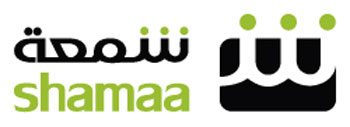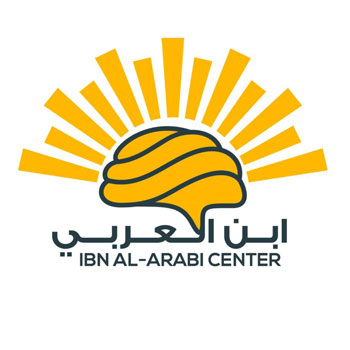Fundamental rules affecting exemptions from fasting
DOI:
https://doi.org/10.56989/benkj.v2i10.149Keywords:
Fundamental rules, exemptions, exemptions from fasting, fasting, worship rulesAbstract
This research aimed at clarifying the fundamental rules affecting exemptions from fasting and explaining these exemptions in the valuable schools of Islamic jurisprudence. Furthermore, it explained the difference in the meaning of fasting (act of abstaining from talking) and fasting (act of abstaining from food) in the language and mentioning the selected opinion. The researcher had adopted the deductive-inductive approach in studying this important topic. Thus, every exemption was mentioned with its definition, explanation and ruling, in addition to clarifying the points at issue of it and explaining the opinion selected by the researcher. Then the fundamental rules affecting each of these exemptions were mentioned. The researcher ascribed the Quranic verses to their position in the Holy Quran, documented the hadiths mentioned in the research, in addition to the researcher translation of the mentioned eminent persons, except for the great Companions of the Prophet and narrators of hadiths. The research found a set of results and the most significant of which was that the fundamental rules affecting exemptions from fasting fall under the fundamental rules of the Holy Quran and Sunnah, and as other exemptions, these exemptions are based on the obligation's condition which is the ability to act and know it. At the conclusion, the researcher recommended that scholars ought to write more researches about the fundamental rules due to their importance and because non-specialists couldn’t differentiate between the fundamental rules and jurisprudence rules.
References
- القرآن الكريم.
- الآمدي، سيف الدين، (2003م): الإحكام في أصول الأحكام، ط1، دار الصميعي للطباعة والنشر.
-ابن الحاجب، جمال الدين، (1997م): منتهى السول والأمل في علمي الأصول والجدل، ط2.
-ابن خلكان، شمس الدين، (1978م)، وفيات الأعيان وأنباء أبناء الزمان، مكتبة نور.
-ابن دقيق العيد، تقي الدين، (1995م)، إحكام الأحكام شرح عمدة الأحكام، دار الجيل بيروت.
-ابن رشد، محمد، (1415هـ) بداية المجتهد ونهاية المقتصد، ط1، مكتبة ابن تيمية القاهرة.
-ابن فارس، أحمد، (1990م) مقاييس اللغة، ط 1، دار الجيل بيروت.
-ابن قدامة، عبد الله، المغني على مختصر الخرقي، مكتبة الرياض الحديثة –الرياض.
-ابن قدامة، عبد الله، روضة الناظر وجنة المناظر، مؤسسة الريان بيروت.
-ابن كمال، أحمد، فروق الأصول، دار بن حزم.
– ابن اللحام، علاء الدين، القواعد والفوائد الأصولية، المكتبة العصرية صيدا.
-ابن منظور، جمال الدين، (1990م) لسان العرب، ط1.
ابن النجار، محمد، (2000م) منتهى الإرادات، مؤسسة الرسالة ناشرون.
- أبو زهرة، محمد، (1958م) أصول الفقه.، دار الفكر.
-البخاري، محمد، (1993م) صحيح البخاري، دار ابن كثير
-البدخشي، محمد، ( 1993م ) منهاج الوصول، دار الكتب العلمية، بيروت-لبنان.
- البهوتي، منصور، (2003م) الروض المربع بشرح المستقنع، ط1، المكتبة العصرية بيروت.
-الجرجاني، علي، (2011م) معجم التعريفات، دار الفضيلة.
-الجزيري، عبد الرحمن، (1990م) الفقه على المذاهب الأربعة، دار الكتب العلمية، بيروت-لبنان.
- الجوهري، إسماعيل، (تاج اللغة وصحاح العربية) ط4، دار الكتب العلمية، بيروت -لبنان.
الرازي، محمد، (1989م)مختار الصحاح، مكتبة لبنان.
السجستاني, سليمان، (1997م)سنن ابي داوود، ط1، بيروت لبنان، دار بن حزم.
السرخسي، محمد، (1993م) المبسوط، دار المعرفة لبنان.
الشاطبي، إبراهيم، (2022م)ط1، دار الغد الجديد.
الشيرازي، إبراهيم، المهذب في فقه الإمام الشافعي، دار المعرفة.للطباعة والنشر –بيروت –لبنان.
العسقلاني، أحمد، فتح الباري شرح صحيح البخاري، دار الريان للنشر.
الغزالي، محمد، المستصفى، مكتبة نور.
القرافي، أحمد، (1973م) شرح تنقيح الفصول في اختصار المحصول، ط1، دار الفكر.
النسائي، أحمد، سنن النسائي ج 4.
النيسابوري، مسلم، (2010م)، صحيح مسلم، بيروت - لبنلن، دار الكتب العلمية .
خلاف، عبد الوهاب، (1956م) أصول الفقه، دار الحديث، القاهرة.
Additional Files
Published
How to Cite
Issue
Section
License

This work is licensed under a Creative Commons Attribution-NonCommercial 4.0 International License.































 ElDjawda Soft
ElDjawda Soft